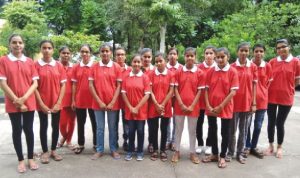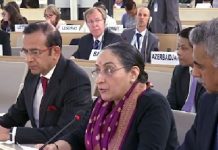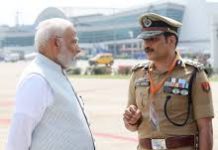 A cross section of youth has got a ray of hope. Kajal of Indachhoi village in Fatehabad secured 293rd rank in the OBC category. She is the daughter of a marginal farmer and she wants to pursue computer science.
A cross section of youth has got a ray of hope. Kajal of Indachhoi village in Fatehabad secured 293rd rank in the OBC category. She is the daughter of a marginal farmer and she wants to pursue computer science.
Kajal said, “We never had resources to take coaching for IIT. Super-100 programme came as a blessing for me”. Praveen, son of a marginal farmer of Munnawali village in Sirsa, secured 434th rank in the SC category. “Before Super-100 programme, I did not know about the IIT. I plan to pursue computer science or civil engineering.
A Dalit student hailing from Muvanpura village in Hisar, Sahil secured 871st rank in the SC category. “I want to pursue computer science. I am thankful to those who told me about the Super-100 programme,” he said.
Additional Chief Secretary, School Education, Haryana, Mahavir Singh said, “It is a dream coming true. Students from underprivileged sections are making inroads into IITs.” He said, “We conduct an entrance test for admission to the Super-100 programme and the cutoff is 80 per cent. We train them in Rewari and Panchkula”.
The Super 100 scheme has been planned by the Haryana government. The main target of this scheme is meritorious students who have passed the 10th standard. The main purpose of the scheme is to provide free coaching programmes to students so that they can prepare for JEE, IIT and NEET competitive exams. In addition, the scheme will also offer a boarding facility to students.
What’s SUPER-100
In the year 2018, Naveen Mishra, founder of Vikalpa foundation, Rewari proposed the idea of Super100 scheme to the directorate of secondary Education, Haryana. The then Director of Secondary Education Rajiv Rattan of DSE appreciated the thought as this scheme could benefit and uplift the underprivileged yet deserving government school students and immediately gave it a green signal. Then, on 10th June 2018, the entrance examination for the same was conducted in which 5000 students who all scored above 80 per cent in the 10th boards took part.
The second round of this test was conducted in July in which 500 out of those 5000 students were filtered for the final round. After which five batches were formed consisting 100 students each who were then prepared for the final test under the guidance of Vikalpa foundation for 5 consecutive days.
At last, 200 students cleared the final test and formed the very first batch of Super100, Haryana which took flight in August, 2018. They were allotted two different centres of Panchkula and Rewari where not just the Tuition fee but their food and lodging were also taken care by the government at the DIET centre.
Like any other educational scheme Super100 too faced some hindrance at the beginning as these students came from a Hindi medium background while the IIT/NEET exams are based in English. Now, these students are ready to compete with other English speaking private coaching centre students. And the recent results validate this.
No doubt that the Super-100 programme has proved to be a boon for the underprivileged students who could not afford the expensive coaching fees of the private institutions and used to give up on their dreams.
This scheme has also benefited the ‘beti bachao, beti padhao’ yojna as the top two scorers of the IIT mains are girls namely Simran who scored 99.47 per cent and Kajal who scored 99.31 per cent, both girls belong to poverty-stricken families where one of the girls father is a paralysis patient and has high hopes for her future. A lot of parents are now willing to send their daughters to be a part of the Super-100 scheme.
Now many states in the country are in the process of launching similar schemes to tap the potential of youth who can’t make it to top institutions because of hefty tuition fee, boarding and lodging but have the potential and dreams in their eyes.
Super-100 came on the heels of the Super 30 programme launched in Patna under the banner of Ramanujan School of Mathematics. It was founded by Ananda Kumar, a mathematics teacher. The programme was launched to select 30 talented candidates each year from economically underprivileged sections of society and trained them for the JEE. In 2002, Anand Kumar started Super 30 with the plan to select 30 talented students from economically impoverished sections who could not afford IIT coaching. Anand Kumar’s mother, Jayanti Devi, volunteered to cook for the students while Anand Kumar and other teachers tutored them. The students were also provided study materials and lodging for a year free of cost.
In the first year of the coaching, 18 out of 30 students made it to IIT. The following year, application numbers soared due to the popularity of the program and a written examination was conducted to select 30 students. In 2004, 22 out of 30 students qualified for IIT-JEE, increasing the popularity of the program which attracted even more applications.
In 2005, 26 out of 30 students cleared the IIT-JEE main exam, while 28 in 2006 made it. The following year 28 more students cleared the IIT-JEE, and in 2008, all of the Super 30 students cleared the IIT-JEE. Some of Kumar’s former students joined as Super 30 teachers and in 2009 and 2010 all 30 students again qualified the IIT JEE exams.
In subsequent years, the success rates from the 30 students were: 2011 (24 passed), 2012 (27 passed), 2013 (28 passed), 2014 (27 passed), 2015 (25 passed), and in 2016 (28 passed). In 2017, all Super 30 candidates made it to the IIT-JEE. In 2018, 26 of the 30 students cleared the examination and made it to IITs. The same year Super-100 concept was given a practical shape in Haryana and the results are a glimmer of hope for the marginalized families and their wards to realize their dreams.
letters@tehelka.com












